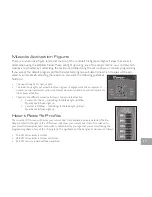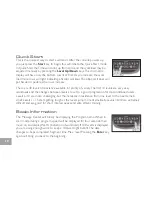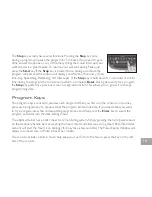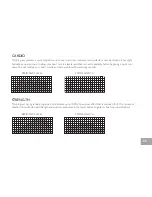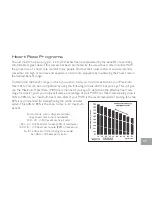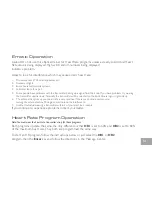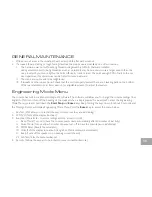
30
Wearing The Chest Strap
1.
Attach the transmitter to the elastic strap using the interlocking key.
2.
Adjust the strap as tightly as possible as long as the strap is not too tight to remain
comfortable.
3. Position the transmitter with the logo centered in the middle of your torso facing away
from your chest (some people must position the transmitter slightly left of center). Attach
the final end of the elastic strap by inserting the round end and, using the locking parts,
secure the transmitter and strap around your chest.
4. Position the transmitter directly below the pectoral muscles.
5. Sweat is the best conductor to measure very minute heart beat electrical signals. However,
plain water can also be used to pre-wet the electrodes (2 ribbed oval areas on the reverse
side of the belt and both sides of the transmitter). It’s also recommended that you wear
the transmitter strap a few minutes before your work out. Some users, because of body chemistry, have a more difficult
time in achieving a strong, steady signal at the beginning. After “warming up”, this problem lessens.
6.
Your workout must be within range - distance between transmitter/receiver – to achieve a strong steady signal. The
length of range may vary somewhat but generally stay close enough to the console to maintain good, strong, reliable
readings. Wearing the transmitter directly on bare skin assures you of proper operation. If you wish, you may wear the
transmitter over a shirt. To do so, wet the areas of the shirt that the electrodes will rest upon.
Note: The transmitter is automatically activated when it detects activity from the user’s heart. Additionally, it automatically deactivates when it
does not receive any activity. Although the transmitter is water resistant, moisture can have the effect of creating false signals, so you should take
precautions to completely dry the transmitter after use to prolong battery life (estimated transmitter battery life is 2500 hours). The replacement
battery is Panasonic CR2032
.


